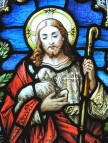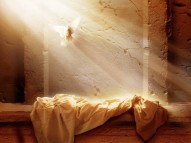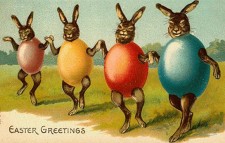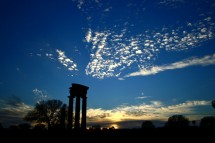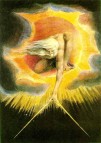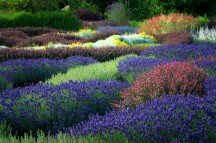23rd Psalm/Sheep May Safely Graze (J.S. Bach) (Easter)
Perhaps the most quoted of all the 150 psalms (lyrical odes) attributed (loosely) to King David in the Hebrew Bible/Old Testament. The music is the most famous selection from the "Hunting Cantata," BWV 208 by J.S. Bach(1685-1750).
Christ The Lord Is Risen Today (Easter)
Lyrics by Charles Wesley, 1739; music by Lyra Davidica, 1708. From John 20:20, penned by Wesley for the inaugural service at the first Wesleyan chapel in London, a year after his own conversion and new leadership of the Methodist movement. This hymn is one of 6000 written by Wesley, including "Hark!The Herald Angels Sing."
Happy Bunny & Egg Easter, A! (Narcissus) (Easter)
"Narcissus" (1891), by American pianist/composer Ethelbert Nevin (1862-1901), #4 of 5 piano solos entitled "Water Scenes." Immediately popular and a light, humorous, familiar standard ever since. Nevin is also the composer of 2 other Victorian standards: "The Rosary" and "Mighty Lak' A Rose."
Holy City, The (Easter)
1892 hymn to resurrection and eternal life by British composer Michael Maybrick (1841-1913 aka Stephen Adams), words by British lawyer Frederic Weatherly (1848-1929), also author of "Roses of Picardy" and "Danny Boy." Sung by Jeanette MacDonald and boy choir in the 1936 film "San Francisco."
Jerusalem (Blake) (Easter)
Poem & illustrations by William Blake, 1804, music by Sir Hubert Parry, 1916. Lines not included here- "Bring me my Bow of burning gold;/ Bring me my Arrows of desire:/ Bring me my Spear: O clouds unfold!/ Bring me my Chariot of fire!"- inspired the title of the notable 1981 film "Chariots of Fire."

